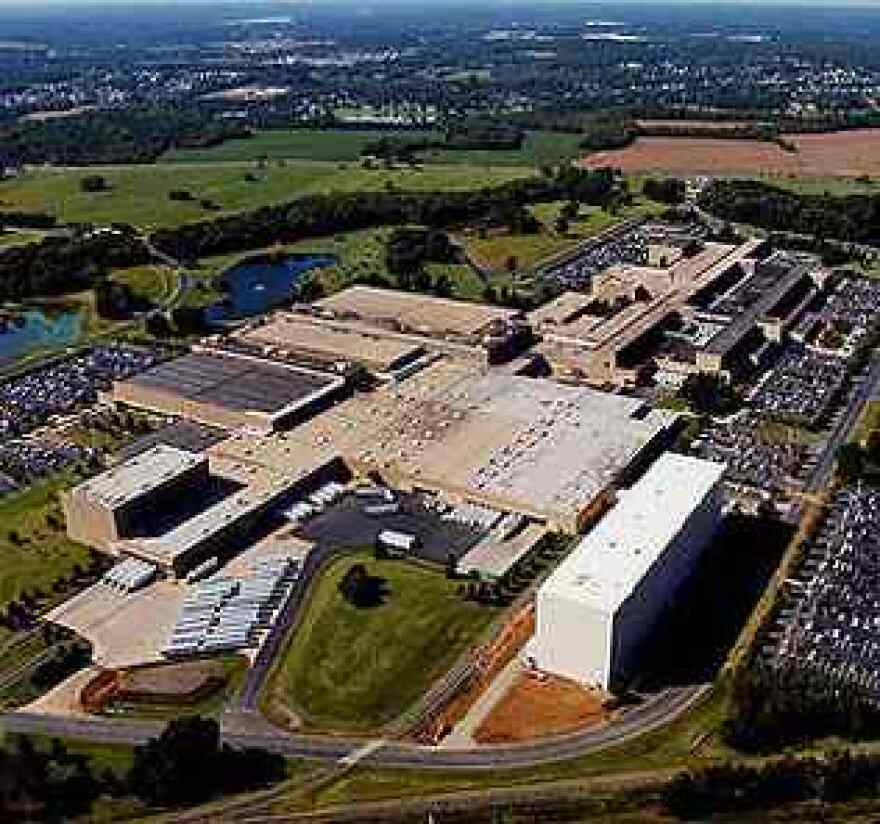Elected officials across the country will tell you they dislike the practice of handing out economic incentives to lure businesses to their communities. But they hold their noses and do it anyway, because "that's the way things work."
Well, officials in Cabarrus County have made the risky decision of saying "No more."
For years, Cabarrus County's economic incentive votes have been 3-2. But not 3-2 like the commission voted at their meeting on August 19, 2013.
When Chairwoman Liz Poole asked for "all those in favor of denying the request (to) please say, 'Aye,'" she got a chorus of three responses.
"That motion passes 3 to 2, so unfortunately, your request has been denied," said Poole, apologetically to the executives of Windshear, which had come asking for incentives valued at $105,000 over three years.
Up until that night, Poole says she and her colleagues had never rejected an economic incentives request from a business willing to invest at least $1.5 million in the county. That's the minimum investment required for a business to get the equivalent of a three-year, 85 percent rebate on its property taxes.
The Cabarrus County tax office says some forty companies have received nearly $30 million in incentives over the last 15 years. Those same companies have also boosted the county's property tax collections by $189 million. But the system screeched to a halt in August, says Poole.
"I don't think we're gonna be doing any incentives for the next year, just based on the feedback I have from the majority," said Poole by phone last week. "The county is not in the game right now."
Jason Oesterreich is being the shift.
"My goal is to come up with a plan that benefits everybody in the county, and is fair to everybody in the county," says Oesterreich.
That August meeting was his first after being appointed by the Cabarrus County Republican Party to replace retiring commissioner Jay White who had been a reliable vote in support of incentives. Oesterreich, by contrast, sees the practice as ripe for corruption.
"I think people can see over and over again that when politicians have the ability to make special deals for special people, they will use that power to benefit themselves and against the people," says Oesterreich.
Commissioner Larry Burrage goes a step further: "Far as I'm concerned, this is just legalized extortion."
Rounding out this new majority on the five-member, all-Republican commission is Chris Measmer – a restaurant owner who takes particular issue with how the incentive program rewards only physical investment in the county.
"Anytime that a government is going to receive additional tax revenue, they're gonna find a place to spend that money," says Measmer. "So I would like to see a policy geared more towards the jobs created - the number of jobs, how long they retain the jobs - and have accountability."
As a rule, local governments tie incentives to property taxes, because that's the tax they collect.
But jobs are the focus of every press conference announcing a business relocation or expansion. Sometimes cities and counties require a certain percentage of those jobs be hired locally. More often they don't. And in the case of Cabarrus County, Jeff Barnhart says that was not an accident.
Barnarht was chairman of the commission in the mid-1990s when the county was a booming bedroom community scraping for cash to build the parks and schools families were demanding.
"We decided, 'Let's get more aggressive about creating some more tax base that's not residential,'" recalls Barnhart. "And I think it ended up being a model for a whole lot of cities and counties."
Barnhart says jobs were not the commission's top concern in writing the incentives policy - property taxes were. And he believes it worked.
"I think a whole lot of what Cabarrus County is today, a lot of that was somewhat formed by the incentive proposals," says Barnhart. "Would other stuff have come (to the county)? Sure. Would it have been same magnitude? Probably not. Would it have been as early as they did? I'm sure not."
But these days, Commissioners Measmer, Burrage and Oesterreich argue Cabarrus County so much going for it that businesses shouldn't need special incentives to open or expand. They say that'll be even more true if they can reverse an 11% property tax (rate) increase enacted in 2012.
And, theoretically, the plan could work, says Jonathan Morgan from the UNC School of Government, but incentives can be an important tie-breaker.
"It's not to say that if you unilaterally disarm and do away with incentives you are somehow going to go into a deep economic recession," says Morgan. "But it does suggest there are certain types of projects that the community will likely not be competitive for" such as big manufacturing plants.

And that just happens to be the one thing for which this new majority on the Cabarrus County Commission would actually be open to offering an incentive: they're eager to find an occupant for the enormous Philip Morris plant on Highway 29 that shut down in 2009. Vacant and stripped of equipment, the plant's annual property tax bill has declined by more than $5 million.
But how does Cabarrus County expect to make the list for such a project now? asks Commissioner Steve Morris.
"You know I think we've established a reputation, for the time being, that we're not willing to play the game," says Morris.
That's quite a reversal for a county that was an early – and aggressive – competitor on the business incentives playing field in North Carolina.


